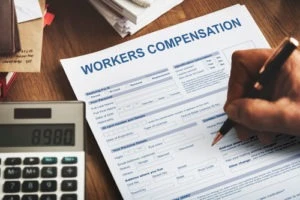 Workers and employees deserve to be compensated when they are hurt on the job, which is why each state has a mandated workers’ compensation program. In Ohio, workers’ compensation benefits may be provided through the state-funded system or through the employer’s own insurance. Despite this, it is often not easy for an employee to get rightfully compensated for a work-related injury or illness which is why it’s critical to hire a personal injury lawyer in Columbus.
Workers and employees deserve to be compensated when they are hurt on the job, which is why each state has a mandated workers’ compensation program. In Ohio, workers’ compensation benefits may be provided through the state-funded system or through the employer’s own insurance. Despite this, it is often not easy for an employee to get rightfully compensated for a work-related injury or illness which is why it’s critical to hire a personal injury lawyer in Columbus.
Thousands of job-related injuries and illnesses occur in Ohio each year. In 2014 alone, the state had more than 121,000 non-fatal occupational injuries and illnesses and 185 fatal ones, according to the Bureau of Labor Statistics.
Ideally, each person who has been injured or developed a health condition on the job should receive full compensation for his or her losses. Yet many still end up settling for less than what they deserve, or are outright denied. With all the challenges that come with filing a workmans compensation claim, it is important for an employee to get the help of a sincere and competent lawyer.
What Workers Compensation Covers
Generally, workers comp covers most on-the-job injuries and illnesses, with a few exceptions. Some exceptions are when the employee became injured while intoxicated, while self-inflicting harm, or while committing a crime. For most other injuries, a worker may file for workers’ comp as long as the injury is job-related. This is applicable even when the injury occurred outside the workplace – for example, when an employee is injured in a car crash while on a business errand.
Workers’ compensation also covers illnesses that develop due to the job. Common examples are asbestos diseases that develop among construction site workers, and carpal tunnel syndrome among those who work on computers all day.
While workers’ comp typically reimburses for medical bills, it may also cover other losses. These are only some of the compensation types listed by the Ohio Bureau of Workers’ Compensation (BWC):
- Temporary disability
- Permanent disability
- Wage loss
- Change of occupation
- Facial disfigurement
- Living maintenance
- Death benefits – may be claimed by and awarded to a dependent of an employee who died of a work-related injury or illness. This applies even when the employee claimed workers’ compensation prior to the death.
Challenges In Claiming Workers’ Compensation
When considering a workers’ compensation claim, an employee should be aware of the challenges that may prevent him or her from getting rightfully compensated. The best way to meet these challenges is to enlist a lawyer who is experienced in workers’ rights and compensation.
Navigating The Claims Process
The workers’ comp claims process can be a complex legal maze for many employees. With the complicated paperwork, ambiguous legalese, and assertive claims coordinators and insurance adjusters, many claimants eventually get lost in the bureaucracy and settle for an early offer. Sadly, this amount is often much less than what they truly deserve.
Denial Of Claim
Unfortunately, some compensation claims can be denied. There are various reasons for this – sometimes, it’s a technical mistake such as not filing the claim on time or not providing enough information. But many times, it can be because the employer disputed the claim and the BWC decided in favor of them.
Losing The Right To Sue
Under the law, receiving workers’ compensation means giving up the right to file a lawsuit against the employer. For an employee who may have a bigger case, this may not be ideal. For example, if the worker’s injury was caused by the employer’s recklessness, the worker may be entitled to more than just worker’s comp. The worker may choose to bypass the workers’ compensation system in order to sue the employer for a full range of damages.
Changes In The Law
The legal landscape regarding the rights of workers is always changing, due in large part to new court decisions that modify the specifics of laws. These changes can have an impact on workers’ compensation claims – for example, changing the eligibility requirements or the amount of compensation an employee is entitled to.
The Last Thing You Should Worry About Is How You’re Going To Pay For Your Medical Bills.
3rd Party Liability
In the majority of Ohio workplace accident claims the employee’s source of compensation is from workers comp. However, there can be exceptions to this and one of them is when there is a third-party liability claim.
A third party would be anyone who is not directly employed by the company. Examples of third parties might include:
- Other drivers in vehicle accidents
- Contractors who work at the job site
- Other vendors and supplies
- Equipment manufacturers
If it can be proven that a third party was partly responsible for your injuries the value of your compensation has the potential to be much higher.
Trusted Columbus Workers Compensation Lawyer
In Ohio, the Fitch Law Firm is highly trusted by many employees and workers to help them fight for what they deserve. Over the past 30 years, the firm has won millions of dollars for its clients, helping them recover from their injury or illness.
For a free initial consultation, call (855) LAW-OHIO today or use the consultation form on our contact us page.
